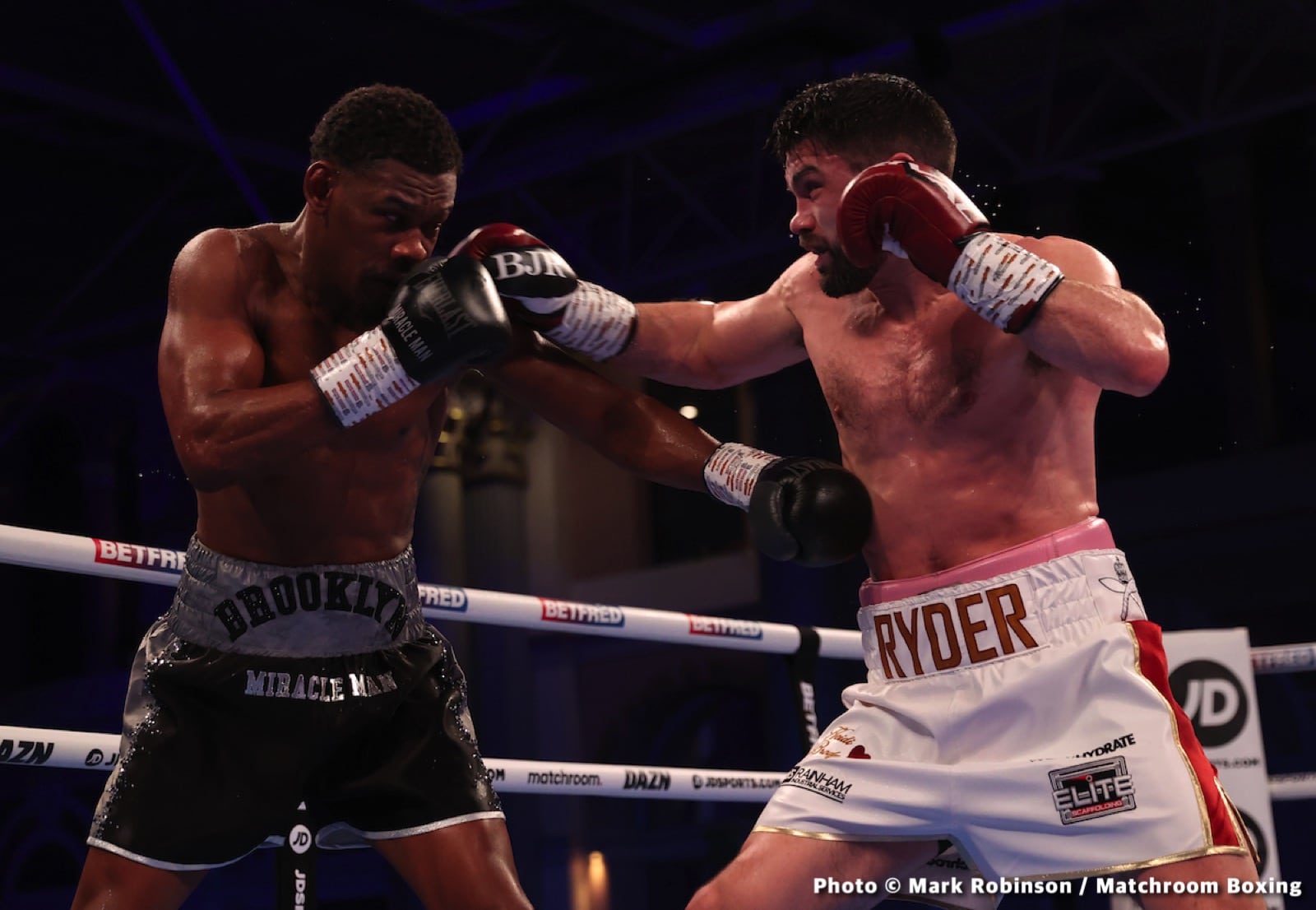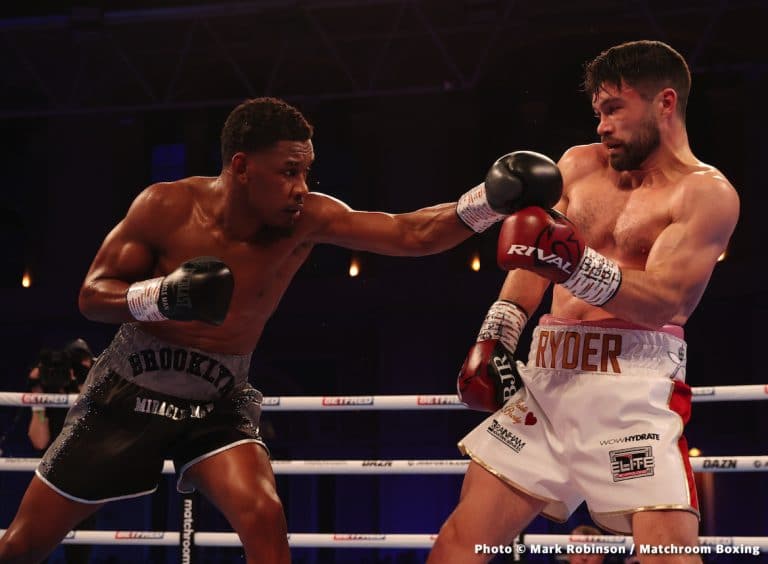By Adam Foy: The result of Saturday’s fight between John Ryder and Daniel Jacobs is yet another addition to the long list of highly questionable decisions that have plagued Boxing since its inception.
In the early days of the sport, it would be up to the referee to declare a winner should no knockout be scored before the allotted time had passed. To avoid controversy, a separate judge was brought in, but as his opinion was just as subjective as the referee’s, this was later changed to two, and then three judges, who would elect the victor by majority.
Despite these measures, contentious results were still rife, and in 1968 the WBC introduced a new, clearer point scoring system known as the ‘10 Point Must System’, which we still use today.
It’s plain then that boxing as a sport has always acknowledged scoring as an issue and in fairness, these were all effective changes in their time, but they only address how and by whom the scores are being written, not what is and isn’t being scored.
I’ve lost count of how many times I’ve heard a pundit suggest that the outcome will “depend on what the judges like” after a close fight, but we all know that there are many ways to win and it seems wrong that people who are staking their lives, their lively-hoods and their future earnings on the outcome of a match, should have to rely on their style meshing with the preferences of bystanders, albeit educated ones.
The biggest problem with all this is the lack of clarity. Many fighters, especially those with a less than attractive style, must often feel like they’re playing Football (Soccer) with invisible goalposts that move for every match … whilst being punched in the face.
I think it goes without saying that everyone in boxing deserves better.
Having said that, what are the solutions?
All of the sport’s governing bodies are keen to assure us they are doing more than ever to hold judges accountable, and that is probably true. It has become more commonplace to have a judge stand before a panel and justify their decision, but this rarely ends with so much as a reprimand, and these inquiries often happen days or weeks after the fight, leaving no possible recourse for the fighters other than a rematch, which they usually don’t get.
So why not ask judges to explain their reasoning as they’re scoring the fight?

The current scorecards are incredibly simple and haven’t changed much in fifty years. Each fighter has three columns; POINTS, POINTS DEDUCTED, TOTAL and that is it. I believe in simplicity but I think we can stand to get a little more detailed than that.
Aside from knockdowns and point deductions, there are many ways to be more effective than your opponent and win a round, but for our purposes, I think they can be broken down into three categories …
PUNCH QUALITY/SIGNIFICANT PUNCHES – When a boxer gains the upper hand by landing clean punches to the head or body or landing heavy punches that have a clear effect.
PUNCH VOLUME/LANDED – When a boxer gains the upper hand by the quantity of punches landed, even if the punches aren’t necessarily that clean.
CONTROL OF SPACE – When a boxer gains the upper hand by controlling the space, either by being first and using aggression to push their opponent back or by using movement and positioning. *This could also be thought of as dictating the pace.
If we give each category a column on the scorecard, the judges could score the round and then tick the relevant box to explain their reasoning. This should provide some much-needed clarity for fighters, fans, trainers, and promoters alike, as well as making the judge’s jobs just that little bit easier.
On the subject of making judging easier, the current trend of the governing bodies discouraging judges from scoring round’s as a draw is extremely counter-productive. Some rounds are just too close to call and awarding those rounds one way or the other is unfair to the competitors.
And finally, we come to the elephant in the room; Judges will always be influenced to some degree by a partisan crowd. This is the human element that’s almost unavoidable and the only solution would seem to be at least one judge watching the fight on a muted monitor in a separate building. I don’t actually think this is a bad idea, especially for big fights, though I’m sure most judges would disagree; stating that you “miss a lot on T.V”.
Whilst it is obviously impossible to eradicate bad decisions from boxing, I do believe these are all workable ideas that improve our sport without affecting the in-ring action in any way.
So … thoughts?
